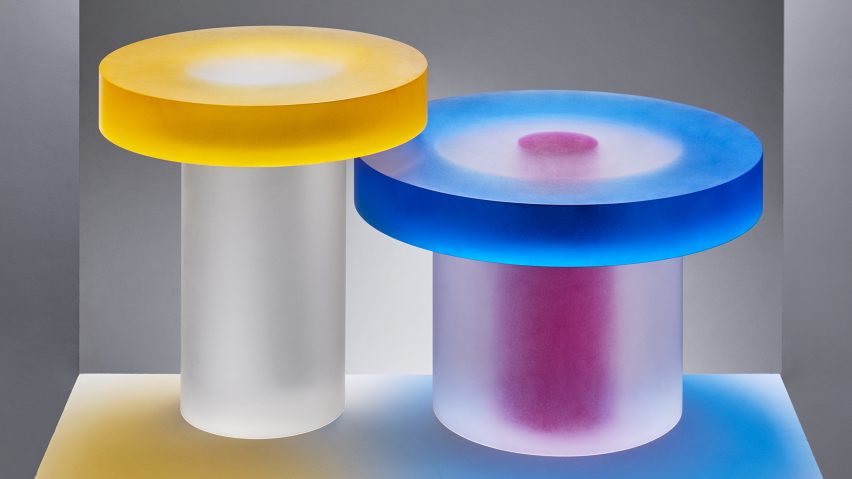London designer Andy Martin used coloured resin for this series of tables that create visual effects.
Martin layers sections of contrasting colours in each Blocks table, working with both clear and semi-opaque resin.
The semi-opaque resin appears to glow when light hits the table, while the segments made from clear resin create a distorted perspective of what's on the other side.
"The forms are very simple, but the material, shape and the colour produce warped forms and they challenge visual perception," said Martin, who, in addition to running his own studio, set up architecture firm AMA in 2000.
While it's a challenge to cast resin without making air bubbles, Martin focuses on attaining an unblemished finish throughout to create the optical illusions.
The collection includes a taller table supported by a single column, with a bright yellow circular top. Another piece has a pattern of concentric pink and blue rings in the tabletop, created by circular pieces set into one another.
Martin first started working with resin as a teenager, while making surfboards, but began using the material in later years to make architectural models.
An earlier series of Blocks pieces also featured contrasting colours, but they were joined together into a single block.
"They were very simple forms and the colour was the only element which gave the form a three-dimensional quality," added Martin. "These new pieces explore the addition of one more form to create an assemblage and its effect on the first single piece."
Several designers have used resin to create colour effects, including Saerom Yoon, who designed a set of pastel tables that resemble crystals.
Others have used it to build on existing objects, such as Nucleo's set of classic bentwood Thonet chairs held in transparent blocks, or Moreno Ratti's marble vases trapped in cubes of resin.
Photography is by Nick Rochowski

